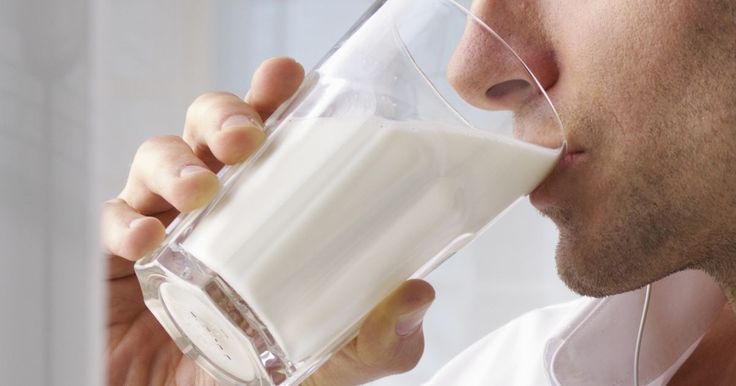Essential Nutrients For Strong Mental Health
January 1 2018Eat well to protect one of the most important organs in your body: Your brain.
You know you need calcium for strong bones and fiber for a healthy digestive tract. There are also nutrients you need for a strong brain, according to research published in The Lancet Psychiatry.
“Nutrition is as important to psychiatry as it is to cardiology, endocrinology and gastroenterology,” says lead study author, Jerome Sarris, PhD, of the University of Melbourne and a member of the International Society for Nutritional Psychiatry Research.
While food is always a great way to get these brain-beneficial nutrients, supplements can be considered for larger nutrient deficiencies or simply to give your body a head start while making dietary changes.
“You don’t necessarily need to take a supplement if you’re perfectly healthy,” says Mark Moyad, MD, MPH, author of The Supplement Handbook. “If you do have a health condition, though, or you’re at higher risk of a disease, you may want to consider taking a supplement.”
Dr. Moyad shared how these nutrients can help you overcome or prevent psychiatric issues. (Always consult with your own doctor before starting to take supplements, especially if you’re currently taking medication.)

Omega-3 Fatty Acids
“Both plant and fish sources of omega-3 fatty acids may slightly reduce depression,” says Dr. Moyad. Omega-3s may even help Alzheimer’s patients, although, he notes, they help more with depressive symptoms, not memory loss.
Dr. Moyad also says there is preliminary evidence that omega-3s may help reduce the overactivity of cellular signals in the brain in adults and children with bipolar disorder.
Food Sources: Fish (wild-caught salmon, mackerel, anchovies, sardines, trout, and white fish), chia seeds, flaxseeds, and walnuts.

B Vitamins
“Folic acid and B12 are showing promise for those with depression,” says Dr. Moyad. “Folate depletion also appears to occur in the severe depression phase of some bipolar disorders.”
He does advice against high doses of B vitamins for those with Alzheimer’s because research has found that it may increase depressive symptoms.
Additionally, preliminary research suggests that taking folic acid while pregnant can reduce the risk of autism by 40 percent. “Folic acid is an essential vitamin, especially in the first trimester of pregnancy, because it’s involved in the formation of major organ systems, including the brain and spinal cord,” he says.
Food Sources of Folic Acid: Broccoli, spinach, asparagus, lentils, avocado, papaya, corn, and peanuts.
Food Sources of Vitamin B12: Clams, eggs, crab, beef, trout, salmon, tuna, haddock, milk, and yogurt.

Choline
“Supplementation modulates high-energy phosphate metabolism and is also being studied to improve mania in bipolar disorder,” says Dr. Moyad. While he points out preliminary research in this domain has been shaky, he does say it’s worth discussing it with your doctor.
Previous research has also shown that choline may help with your memory.
Food Sources: Eggs, milk, beef, pork, chicken, turkey, salmon, shrimp, crabmeat, soybeans, legumes, tomatoes, flaxseeds, and pistachios.

Magnesium
For bipolar disorder, Dr. Moyad says that magnesium oxide may help convert 5-HTP to calming serotonin, but dosages need to be figured out on an individual basis with your doctor. And, while less severe than bipolar disorder, magnesium may also help with mood swings due to PMS.
Food Sources: Pumpkin seeds, edamame, Swiss chard, almonds, spinach, cashews, oatmeal, pinto beans, and brown rice.
S-adenosyl methionine (SAM-e)
“SAM-e improves the production and use of several brain neurotransmitters, including dopamine and serotonin,” explains Dr. Moyad. Plus, SAM-e doesn’t come with the risk of sexual dysfunction seen in traditional antidepressants and it’s even being studied for atypical depression, where traditional antidepressants may be ineffective.
There are no food sources of this nutrient. It is naturally produced in the body.

Vitamin D
There’s definitely an association between brain issues, like Alzheimer’s disease, and low vitamin D levels. Plus, previous studies have found links between vitamin D deficiency and seasonal affective disorder, or depression due to winter.
Dr. Moyad also says that there’s preliminary research showing low vitamin D levels may also speed up the progression of Parkinson’s disease, along with preliminary evidence suggesting vitamin D deficiency during pregnancy can increase the child’s risk for autism.
Food Sources: Sardines, wild salmon, milk, tuna, yogurt, eggs, Swiss cheese
Article sourced from Rodale Wellness.
